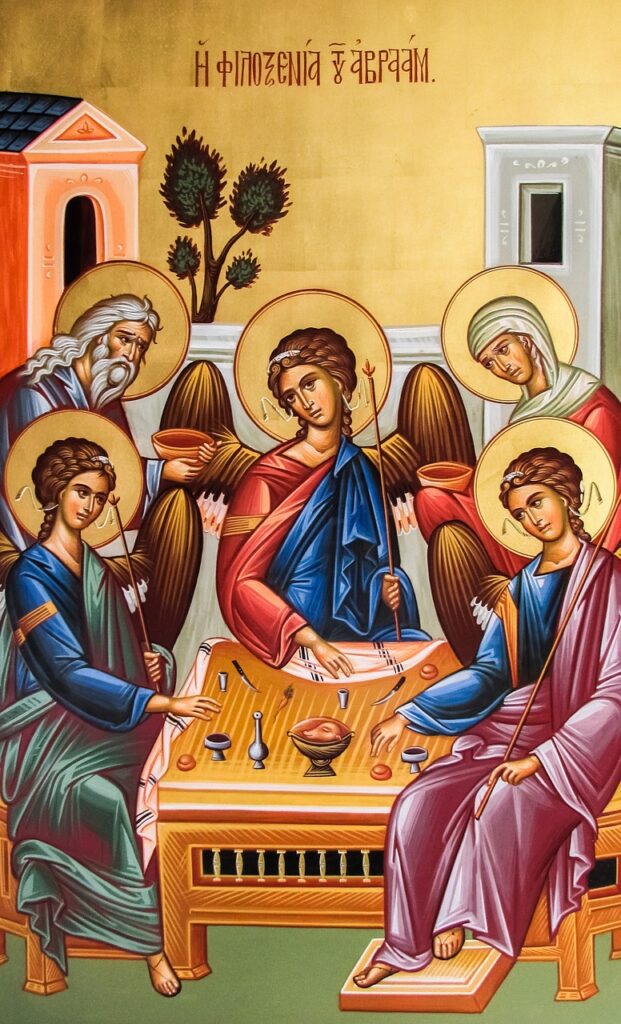The Holy Trinity is the cornerstone of Orthodox Christianity, a profound mystery that reveals the nature of God as one divine essence in three distinct persons: the Father, the Son (Jesus Christ), and the Holy Spirit. This central doctrine not only defines the Christian understanding of God but also shapes the faith, worship, and daily lives of believers. Let’s explore the Trinity’s significance, its biblical roots, and its timeless relevance for modern seekers of truth.
What is the Holy Trinity?
The Holy Trinity is the belief that God exists as three persons in one divine essence. Each person—Father, Son, and Holy Spirit—is fully God, yet distinct in role and relationship. This concept is not just a theological idea but a living reality that Orthodox Christians encounter in prayer, worship, and the sacraments.
God the Father: The Creator of all things, the source of life and goodness, and the ultimate authority.
God the Son (Jesus Christ): The Savior of the world, fully divine and fully human, who lived, died, and rose again to bring salvation to humanity.
God the Holy Spirit: The presence of God in the world, who guides, inspires, and empowers believers, bestowing spiritual gifts like wisdom and discernment.
Together, these three persons form one God, united in love and purpose.
The Trinity in the Old Testament
While the doctrine of the Trinity is fully revealed in the New Testament, its roots can be traced back to the Old Testament. For example:
Genesis 1:26–27: “Let us make man in our image…” Some interpret this plural language as an early hint of the Trinity, suggesting a “heavenly council” or a duality within the Godhead.
Isaiah 9:6: The Messiah is described as “Wonderful, Counselor, Mighty God, Everlasting Father, Prince of Peace,” titles that some Christians see as reflecting the Trinity.
Theophanies: Appearances of the “Angel of the Lord” (e.g., Genesis 16:7, Exodus 3:2) are often interpreted as pre-incarnate appearances of Christ, pointing to the Trinity.
These passages, while not explicitly Trinitarian, lay the groundwork for the fuller revelation of God’s triune nature in the New Testament.
The Trinity in the New Testament
The New Testament brings the Trinity into clearer focus, particularly through the life and teachings of Jesus Christ:
The Great Commission (Matthew 28:19): Jesus commands His disciples to baptize “in the name of the Father, and of the Son, and of the Holy Spirit,” affirming the three persons of the Trinity.
2 Corinthians 13:14: Paul blesses believers with “the grace of the Lord Jesus Christ, and the love of God, and the fellowship of the Holy Spirit.”
John 1:1: “In the beginning was the Word, and the Word was with God, and the Word was God.” This passage identifies Jesus as both distinct from and one with God.
These texts, along with others, form the basis for the Church’s understanding of the Trinity as one God in three persons.
Why the Trinity Matters
The Trinity is not just an abstract doctrine—it’s the foundation of Christian faith and life. Here’s why it matters:
It Reveals the Nature of God: The Trinity shows that God is both unity and community, a God of love who exists in eternal relationship.
It Explains Salvation: Through Jesus Christ, believers are reconciled to the Father and empowered by the Holy Spirit. The Trinity is central to the doctrine of salvation.
It Shapes Worship: Orthodox Christians worship one God in three persons, often invoking the Father, Son, and Holy Spirit in prayers and liturgies.
It Offers Hope: The promise of resurrection and eternal life, rooted in the Trinity, gives believers courage to face life’s challenges.
The Trinity and Modern Life
In a world filled with division, uncertainty, and existential questions, the Trinity offers profound insights:
Identity: In a culture obsessed with labels, the Trinity reminds us that our true identity is found in being beloved children of God.
Unity: At a time of polarization, the Trinity calls us to live in harmony, reflecting the unity of the Father, Son, and Holy Spirit.
Purpose: The Trinity reveals a God who is relational and loving, inviting us to live with meaning and intentionality.
Hope: The promise of resurrection and eternal life offers a perspective that transcends our temporal struggles.
Conclusion: The Trinity as a Guide for Life
The Holy Trinity is more than a doctrine—it’s a dynamic reality that invites us into a deeper relationship with God. Whether you’re exploring faith for the first time or seeking to deepen your spiritual journey, the Trinity offers timeless wisdom, hope, and a vision of life that transcends time and culture.
So the next time you hear or recite the Creed, remember: you’re not just repeating ancient words—you’re connecting with a truth that has guided millions of souls for centuries and continues to light the way for us today.
Join the Conversation!
What does the Holy Trinity mean to you? How has it shaped your faith or sparked your curiosity? Share your thoughts in the comments below—we’d love to hear from you!
For more insights into Orthodox Christianity, subscribe to our blog and explore the rich traditions and teachings of the faith.

